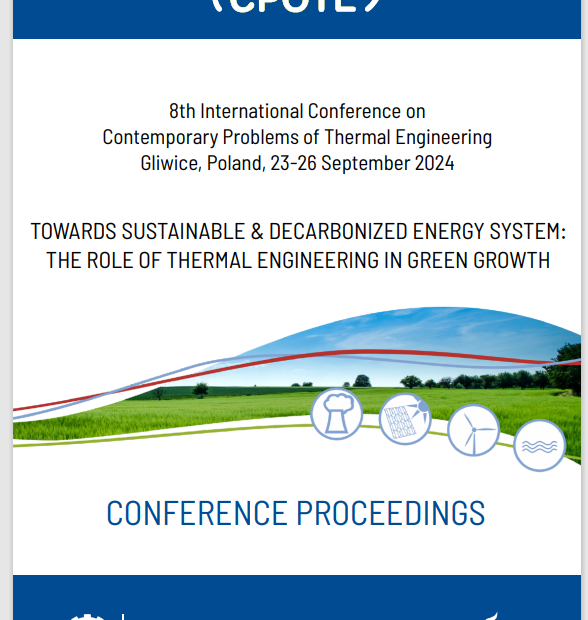8 th International Conference on Contemporary Problems of Thermal Engineering CPOTE 2024, 23-26 September 2024, Poland
Analysis of labour market needs for engineers and professionals with enhanced knowledge in renewable energy solutions and energy efficiency in the built environment in some Balkan Countries
Luca Cioccolanti1*, Moglie Moglie1 , Juan. J. Hernandez2 , Amparo P. Catalán2 , Natia R. Anastasi3 , Hasimin Keci4 , Jani Petro4 , Flora Krasniqi5 , Klodjan Xhexhi5 , Diana Biba6 , Armend Berisha7 , Muhamet Spahiu7 , Jelena Djokic8 , Jelisaveta Marjanovic8
1University eCampus, Faculty of Engineering, Research Center for Energy, Environment and Landscape (CREAT), Via Isimbardi 10, 22060 Novedrate (CO) – Italy
2Universidad de Castilla-La Mancha. E.T.S. Ingeniería Industrial Avda. Camilo Jose Cela sn, 13071 Ciudad Real (Spain)
3Neapolis University Pafos, Civil Engineering
4Universiteti Europian i Tiranës Architecture
5Polis Universiteti, Department of Architecture and Engineering
6Professional College of Tirana International Office
7UNI Universum International College, International Office
8 International Business College Mitrovica Bislim Bajgora St. Mitrovica, Kosovo *e-mail: [email protected]
Keywords: Renewable energy technologies for buildings, Energy Efficiency in Buildings, Curricula modernization
Abstract
The energy performance of buildings in Western Balkan Countries is generally lower than the required EU standards and energy production is based on fossil fuels, thus greatly contributing to air pollution. On the contrary, these Countries have much-untapped potential for Renewable Energy Technologies (RETs) use which could assure a more secure and cost-competitive national energy supply system in line with the EU energy and climate vision. Implementing this challenging transition requires a new type of professionals with stronger background on clean technologies and energy efficiency for achieving near zero energy buildings. Hence, within the EU co-funded project ‘reZEB’, a group of Higher Education Institutions (HEIs) aims at modernising the current content of modules and teaching methods in a Vocational Education Training (VET) and some Universities in Albania and Kosovo on the application of energy efficient solutions and RETs in buildings. The selection of the modernised content and the design of the learning outcomes to be pursued has been guided by an analysis of the labour market needs in Albania and Kosovo. Indeed, with the target of increasing the employability of graduates and the impact of the project, relevant industries, labour market organisations and other stakeholders have been interviewed and the main results of this analysis are reported in the present paper. In total more than 80 organisations have been contacted showing a great interest in professionals and engineers with enhanced knowledge in the topics of energy efficient and RETs for the built environment
